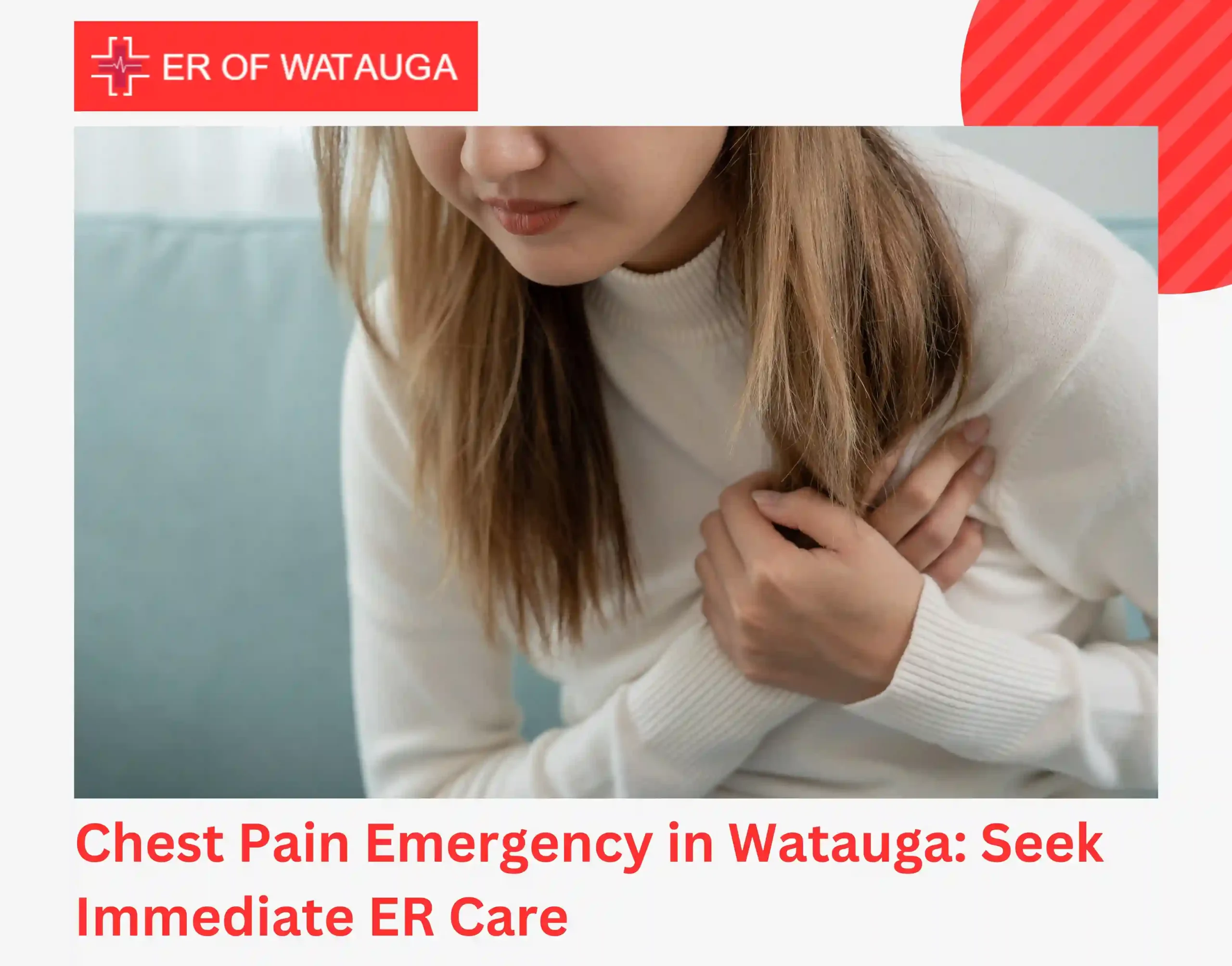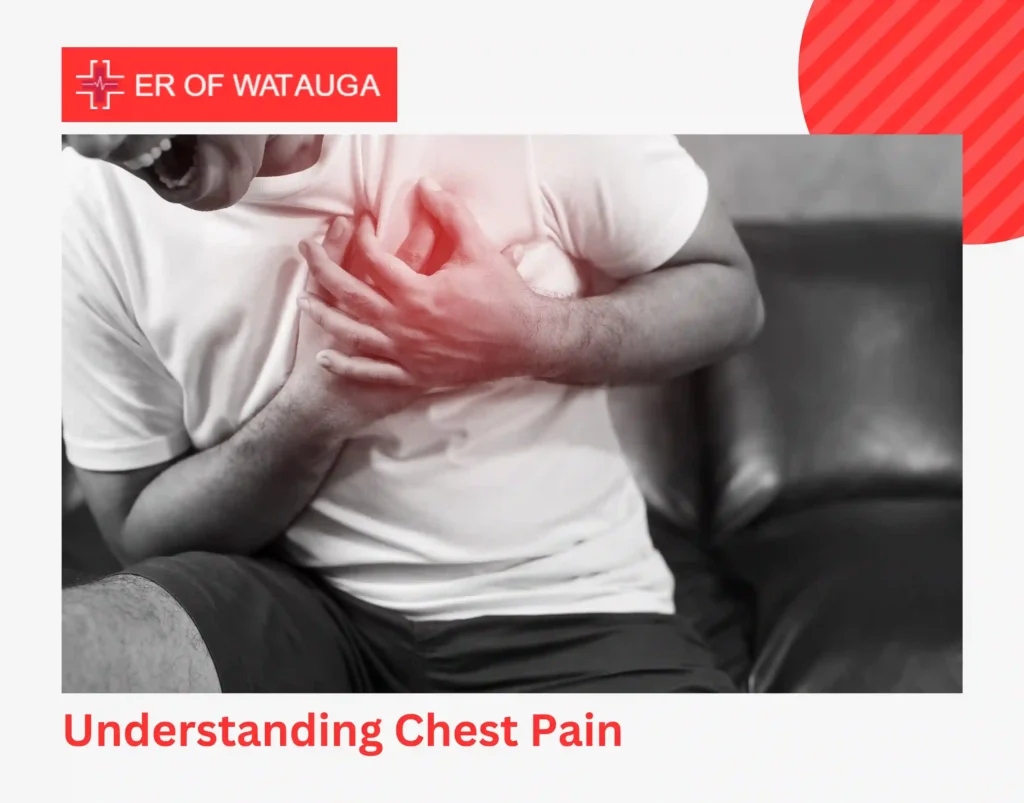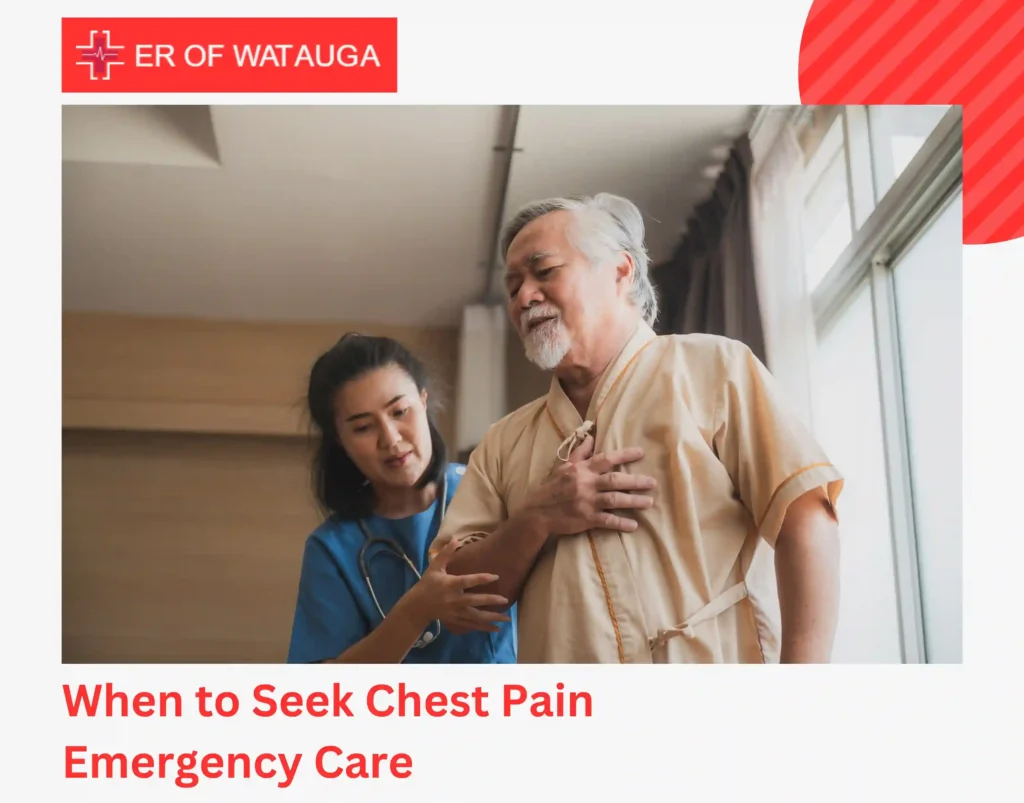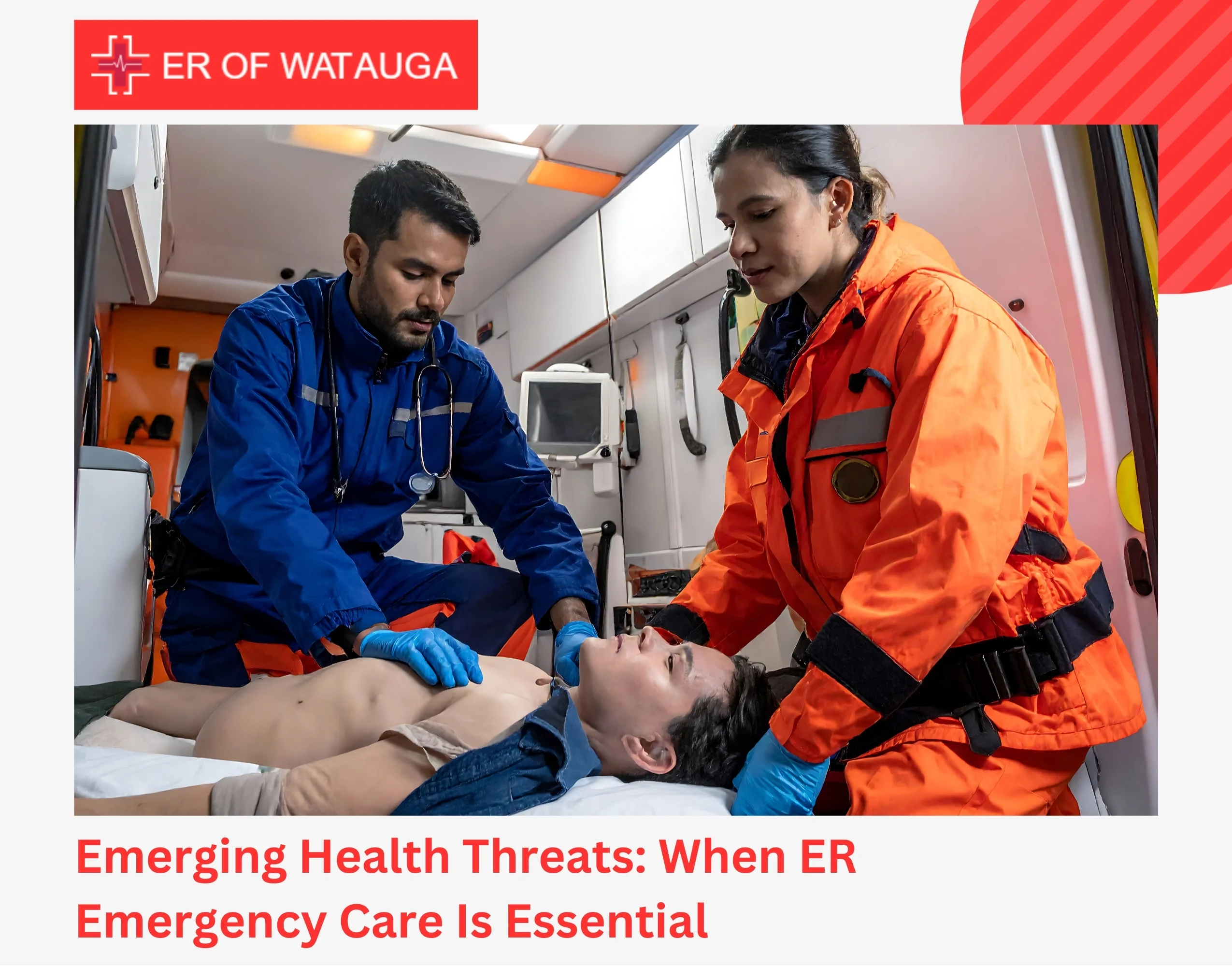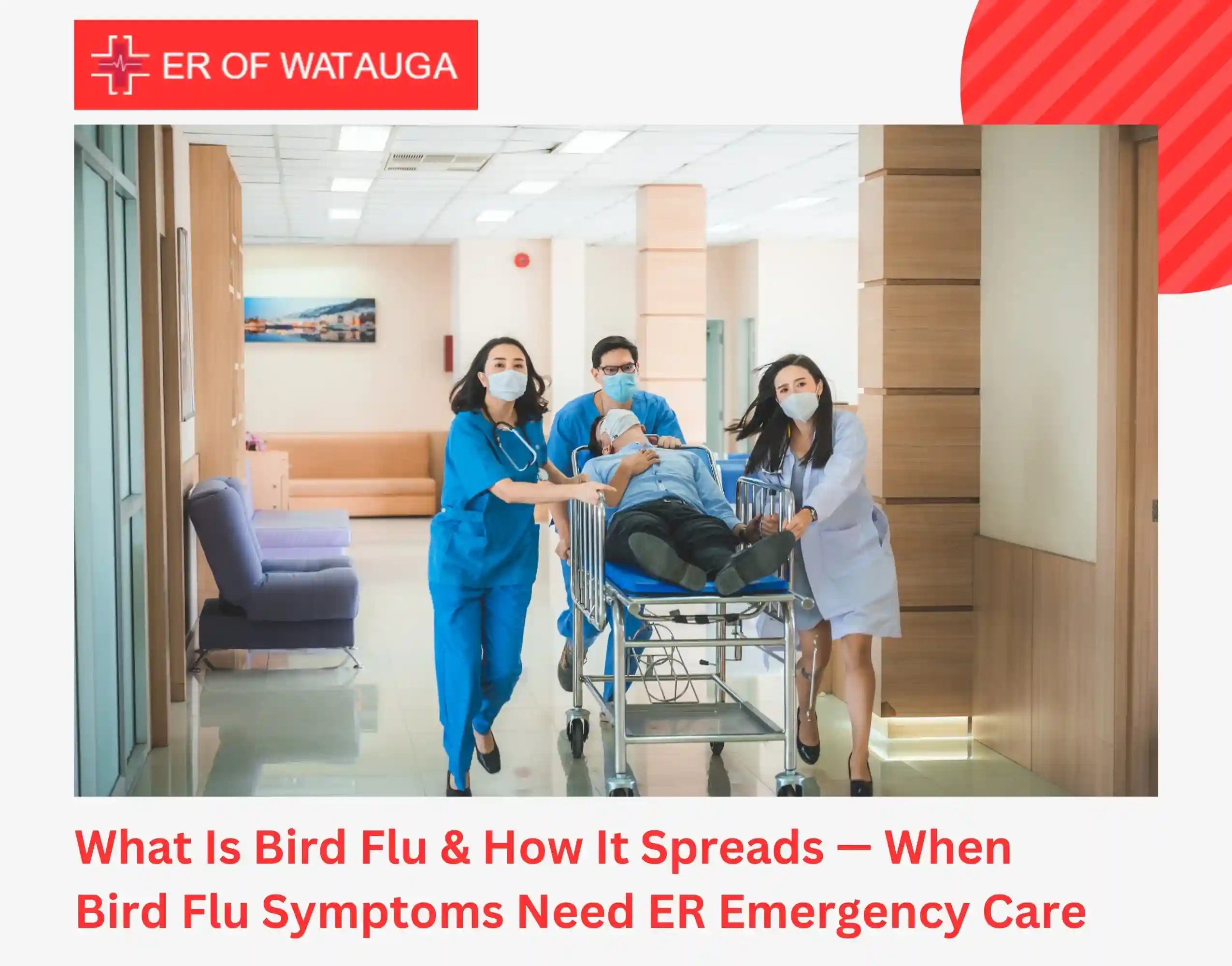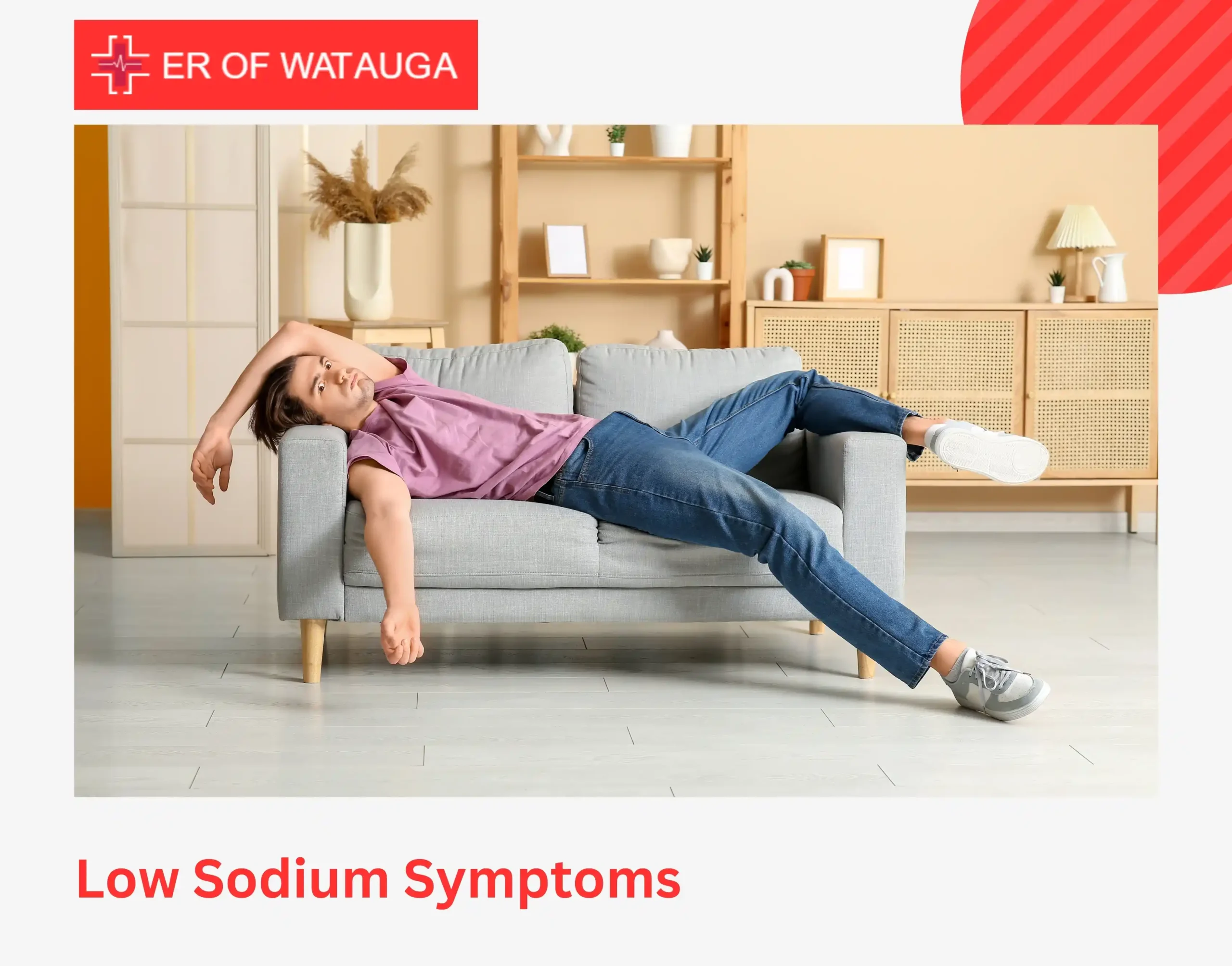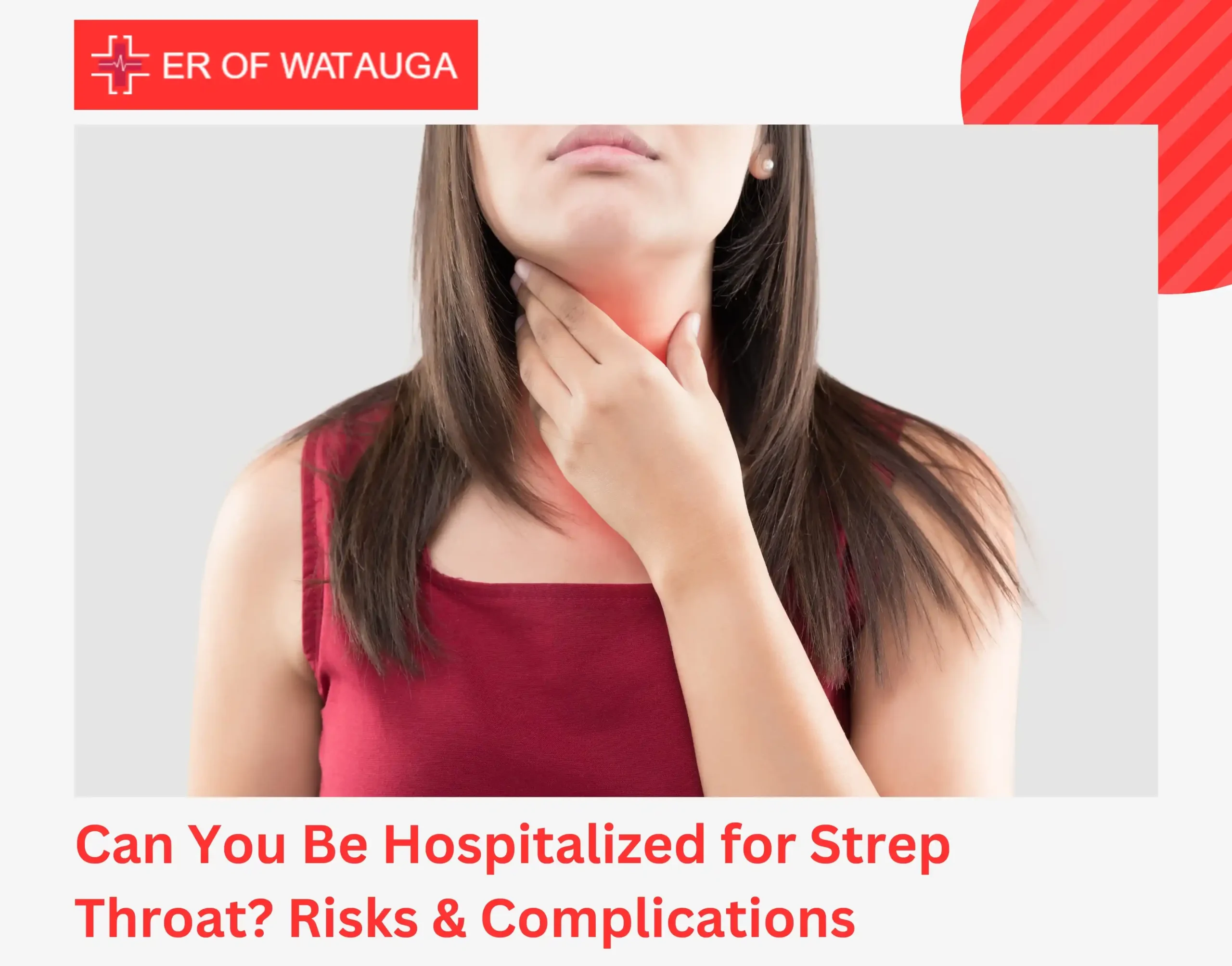Chest pain can signal anything from a life-threatening heart attack to a strained muscle, but you won’t know which until you get expert care. That’s why immediate medical attention is crucial for accurate diagnosis and treatment.
We understand the hesitation to seek chest pain emergency care, but waiting to see what happens is often the most dangerous decision. At Watauga ER, our physicians provide rapid cardiac diagnostics and specialized chest pain treatment 24/7, giving you the best chance for a positive outcome.
Understanding Chest Pain
Chest pain varies significantly, from sharp stabs and dull aches to burning sensations. Each type can point to different causes, with symptoms ranging from mild discomfort to severe pain that radiates to your arms, back, or jaw.
While some causes of chest pain are relatively harmless, others may signal cardiac conditions requiring immediate treatment.
Common Causes of Chest Pain
Cardiac Issues
- Heart Attack (Myocardial Infarction): Often represented by pressure or constricting pain, usually radiating to the arm, neck, or jaw.
- Angina: A warning sign of diminished blood flow to the heart muscle, generally induced by physical exertion or anxiety.
- Pericarditis: Inflammation of the sac surrounding the heart,frequently causing sharp, positional pain that alleviates when leaning forward.
Respiratory Issues
- Pulmonary Embolism: A potentially fatal blockage in the lung arteries, often accompanied by sudden shortness of breath and sharp discomfort.
- Pneumothorax: A collapsed lung may result in sudden, unilateral chest pain and breathing difficulties.
- Pneumonia or Severe Bronchitis: These infections may cause chest discomfort along with fever and coughing.
Gastrointestinal Causes
- Acid Reflux or GERD: Frequently confused with heart-related pain, this burning sensation comes from stomach acid irritating the esophagus.
- Esophageal Spasms: Can resemble cardiac pain, presenting as severe, constricting discomfort.
- Gallbladder Issues: Biliary colic may radiate pain to the chest, particularly after consuming fatty meals.
Musculoskeletal Concerns
- Costochondritis: Inflammation of the chest cartilage, causing localized sensitivity and pain.
- Muscle Strain: Overexertion or injury can lead to ongoing soreness or sharp pain.
Psychological Factors
- Anxiety or Panic Attacks: These can create chest tightness, rapid breath, and a feeling of impending doom, often misinterpreted as cardiac issues.
Due to this wide range of potential causes, chest pain requires immediate evaluation to determine its origin and severity.
When to Seek Chest Pain Emergency Care
Deciding whether chest pain requires a visit to the ER can be difficult. Here are critical signs that show you need immediate medical help:
- Sudden, intense chest pain that spreads to the arms, jaw, or back
- Breathlessness or trouble breathing
- Feeling dizzy, faint, or lightheaded
- Feeling nauseous, vomiting, or experiencing cold sweats
- A sensation of pressure, tightness, or heaviness in the chest
- Pain that worsens with exertion and doesn’t ease with rest
Disregarding these signs can result in life-threatening issues, like heart attack or irreversible harm to essential organs.
The Importance of Quick ER Care
When it comes to chest pain, timing is crucial, as delays in treatment can greatly affect outcomes. Quick access to emergency services provides essential advantages:
- Rapid Diagnosis: With advanced diagnostic tools like ECGs, chest X-rays, and blood tests, ER teams can swiftly distinguish between serious cardiac issues and less urgent causes of chest pain. This quick assessment is critical for determining the next steps.
- Immediate Treatment: Conditions such as heart attacks require urgent action. Fast delivery of clot-dissolving medications or procedures like catheterization can reduce heart damage, enhance survival rates, and lower the risk of long-term complications.
- Continuous Monitoring: After initial treatment, ER teams offer ongoing monitoring to manage any complications that may arise. Whether it’s stabilizing irregular heart rhythms or addressing breathing issues, timely interventions in a controlled setting can help prevent further decline.
- Specialized Expertise: In complicated cases, having access to a team of specialists allows for customized treatment plans, which can improve recovery and long-term outcomes.
The speed and effectiveness of care in an ER can be the deciding factor between a complete recovery and lasting harm, highlighting the necessity of seeking help at the first sign of chest pain.
Emergency Response Protocols for Chest Pain
The ER of Watauga is a trusted, highly equipped facility designed to provide exceptional emergency care. Here’s how it ensures top-notch support for patients experiencing chest pain and other urgent medical concerns:
- 24/7 Immediate Availability: Chest pain does not adhere to a timetable, and the ER of Watauga remains open around the clock to offer prompt care whenever emergencies arise.
- Professional Medical Teams: The trained and seasoned staff at the ER perform exceptionally under pressure, providing specialized care for both cardiac and non-cardiac emergencies with skill and empathy.
- Cutting-Edge Technology: Equipped with advanced diagnostic instruments such as portable ECG devices and high-definition imaging systems, the Emergency Room guarantees precise and rapid evaluations to facilitate timely treatment choices.
Whether it’s a small issue or a life-threatening crisis, the ER of Watauga is prepared to offer thorough and effective care whenever it is most necessary.
Preventing Delays: What You Can Do
While ER of Watauga is well-equipped, there are steps you can take to ensure you get prompt care if you experience chest pain:
- Call 911: It’s dangerous to drive yourself to the hospital when you’re having chest pain. Paramedics can start treatment while you’re on the way to the ER and can alert the hospital to prepare for your arrival.
- Have an Emergency Plan: Know your nearest ER with cardiac care capabilities. Our Watauga facility provides 24/7 cardiac diagnostics, and having an emergency plan saves precious time.
- Know Your Medical History: Sharing your pre-existing conditions, medications, and allergies with the ER staff can help speed up the diagnostic process.
- Recognize Early Symptoms: Be aware of the warning signs of heart attacks or other serious conditions so you can act quickly.
- Keep Emergency Contacts Ready: Make sure your family or friends are informed and available to help during a medical emergency.
Discover Early Signs of a Heart Attack
Follow-Up Care After an ER Visit
After receiving emergency treatment for chest pain, follow-up care is crucial to prevent future occurrences and address any underlying health issues. Here’s what to expect:
- Consultations with Specialists: You may need to see cardiologists, pulmonologists, or gastroenterologists for ongoing care.
- Lifestyle Modifications: Incorporating a heart-healthy diet, engaging in regular exercise, and managing stress effectively can help lower the risk of experiencing chest pain again.
- Medication Management: It’s important to adhere to prescribed medications, such as those for blood pressure or cholesterol management.
- Monitoring and Regular Check-Ups: Regular health evaluations are essential for tracking your progress and identifying any potential problems early on.
Key Takeaway
Recognizing when to seek emergency care and acting quickly can make all the difference in your recovery and overall health. Trust your instincts if you’re unsure about the seriousness of your symptoms, it’s always best to prioritize your well-being and seek professional advice.
Chest pain is one of the leading reasons for Emergency Room Visits, and at the ER of Watauga, we are committed to providing 24/7 care for all chest pain-related concerns. With a dedicated medical team and advanced resources, we ensure you receive prompt, expert attention without unnecessary delays.
FAQs
What is the ER protocol for chest pain?
For chest pain in the ER: Check vital signs, gather history, do an ECG, and give aspirin if needed.
How do I know if my heart is ok?
To ensure your heart is healthy: Regular check-ups, monitor blood pressure and cholesterol, live a healthy lifestyle.
